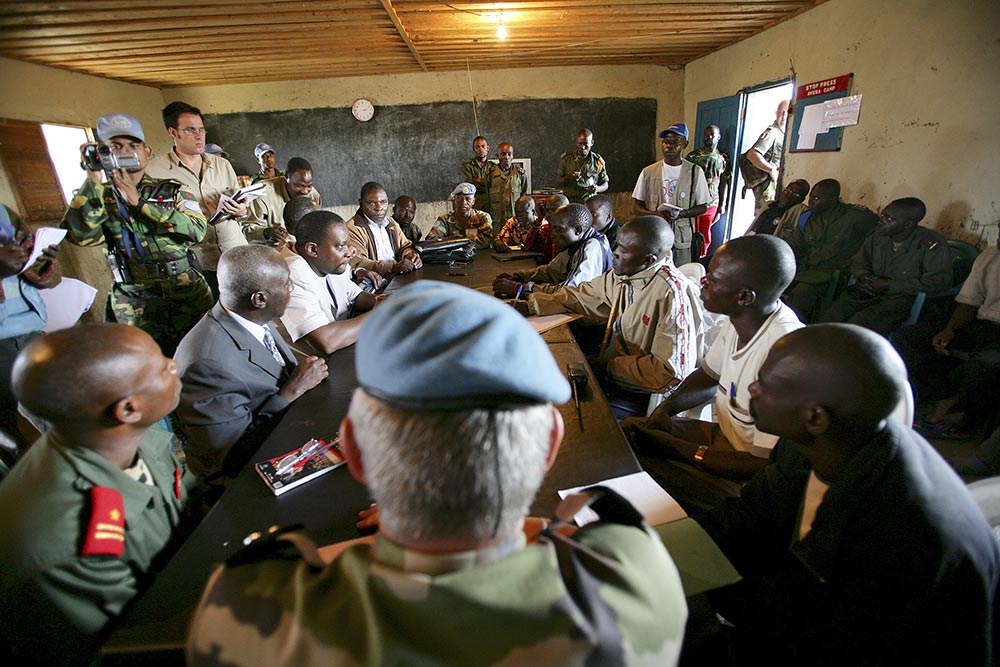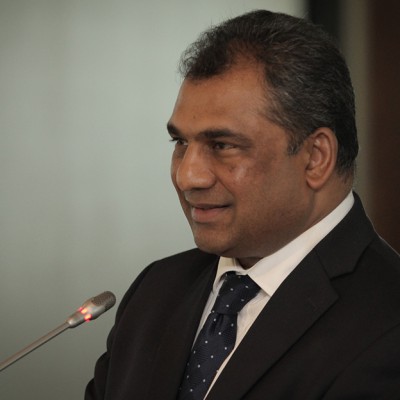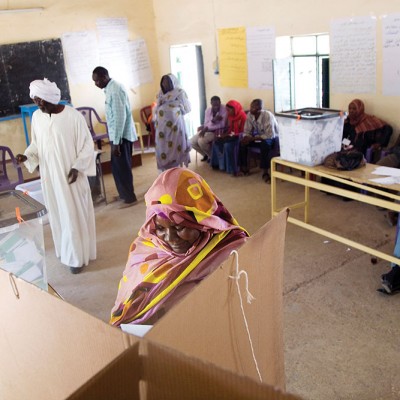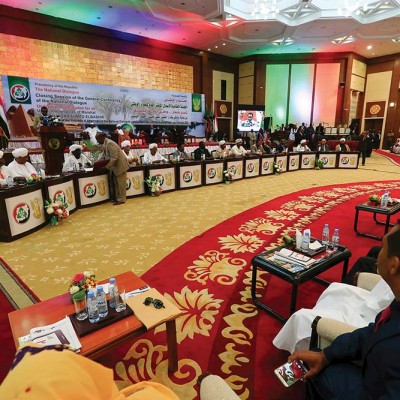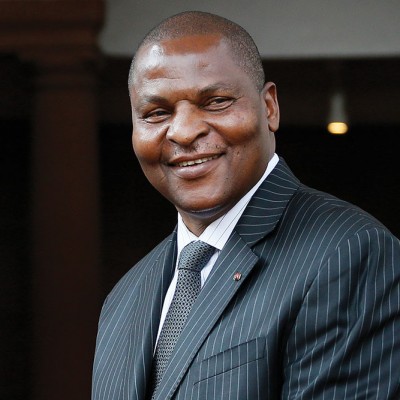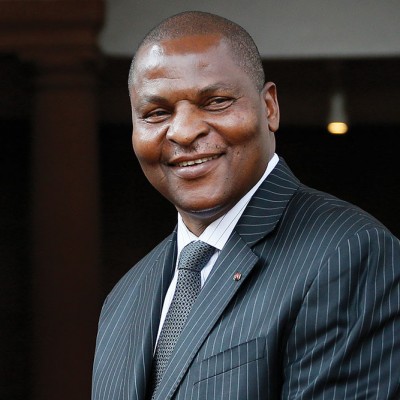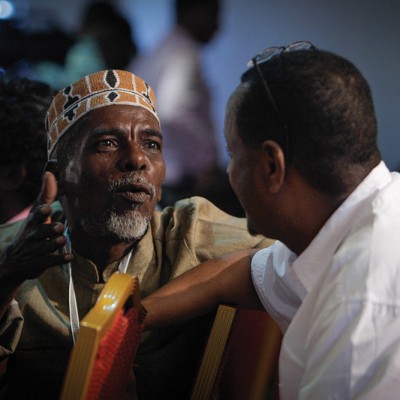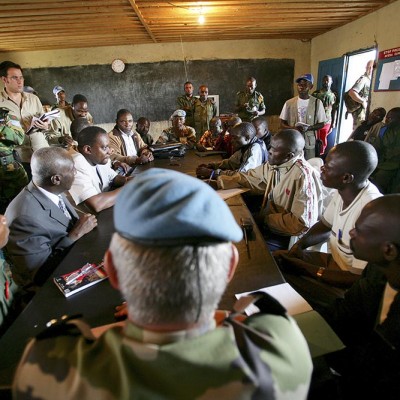The onset of the United Nations (UN) 2030 sustainable development goals (SDGs) provides a platform for increased government involvement in national and global development. The attainment of these goals will require deliberate effort by development practitioners to strategically build and nurture partnerships with government, as key custodians of national development aspirations. This is also true for SDG number 16, which brings to the fore issues of justice, peace and human rights as part of key development discourse. Seven Secrets for Negotiation with Government is a critical reflection that practitioners in the field could consider in their efforts to engage with governments in the monitoring and implementation of these goals.
The UN Secretary-General, Antí³nio Guterres, in his remarks to the Security Council Open Debate on the “Maintenance of International Peace and Security: Conflict Prevention and Sustaining Peace”, highlighted the centrality of building trust between and among member states in efforts towards international cooperation for the prevention of violent conflicts and sustaining the peace agenda.1 In theory, there is an understanding of the importance of trust building and forging strategic partnerships with governments at all levels. In practice, however, this remains a challenge – and one that might linger on in global efforts to enshrine the agenda of preventing violence and sustaining peace.
This book proffers recommendations and advice on how to engage effectively with governments. The author’s central argument is that individuals or practitioners seeking to engage with governments require special skills, techniques and strategies to succeed. In explaining his arguments, the author makes three key assumptions, which are also the basis on which the book is written. First, the primary method for individuals and organisations to deal with government is negotiation – defined as “a process of communication by which two or more parties seek to advance their own interests or those of the persons they represent through an argument or a desired future action”. In this case, negotiation goes beyond signing a contract or reaching a deal, and encompasses softer goals and outcomes. Second, the author considers a negotiation with government as being different from other kinds of negotiations. Underpinning this assumption is the definition of government as an institution with special powers, and its corresponding special constraints. Third, he assumes that despite differences in cultures and political systems, all governments – be they at central or local level – perceive and conduct negotiations in similar ways.
Contrary to common perceptions that governments are monolithic structures, it is important that those seeking to engage with governments further unpack this complexity. In reality, the author notes that governments constitute individuals, departments, units and sectors that have competing– and, in some cases, conflicting – interests, and that it is at this level that negotiations should be pegged. In this regard, finding the correct unit or department to reach out to, and identifying the right official to talk to, are fundamental steps of any preparation for a negotiation process. In addition, it is equally important to conduct an analysis of the multiple interests within a particular agency or department, and what the points of convergence or compromise could be. Internally, this would call for a strong strategy, with goals and options identified, and a carefully constituted team, approaching the negotiations from an interest-based perspective. Externally, the emphasis would be on relationship-building, consultation and the fostering of a positive negotiation environment.
Going a step further, the author suggests tools for effective negotiation with governments, using the power of precedents as well as the powers of written material, of framing and of relationship-building, while recognising that governments don’t like surprises. Reaching out to a third party for assistance is presented as a strategy, that is informed by an evaluation of resources (including information and expertise) needed to make the negotiation successful. This third party could play any of the following roles: an advisor, a negotiation support or agent, a lobbying force, an ally, a participant, a mediator or an arbitrator. The author emphasises the general rules of diplomacy applicable and central to the negotiation process with governments – starting with the necessity of constant negotiation and moving on to the importance of being an apt listener, of keeping one’s goal in mind, of remaining flexible and patient, and of continuously showing respect. Not only do these rules apply to negotiating with government, but also apply to strategies used in different spaces for building and nurturing relationships.
Having debunked the myth of governments being monolithic, and having provided tools for assisting in negotiation processes, the author further outlines why negotiations with governments are unique. The difference between government and other stakeholders is highlighted through its special powers and special constraints. The author outlines four powers: the power of monopoly, the power of privilege and immunity, the power of representing the public interest, and the power of protocol and form. These are then linked with special constraints, the first one being the negotiation rules that the government is subject to; second, the importance of constituents (which might not always be apparent); third, the issue of political imperative; and fourth, the operational norms affecting revenues, resources and objectives. Understanding the political imperative within government requires looking at government both from an organisational perspective and from a human-centred approach. For instance, when considering who to talk to, one should be able to identify different people within government – from elected politicians to political appointees or bureaucrats – as negotiators. Strategies employed should seek to identify the competing interests that an individual might have, including political interests. One interesting consequence of these complexities is the fact that no agreement or deal with government is presented as everlasting, with the understanding that the state can revoke a deal at any time “on the grounds of protecting national sovereignty, national security or the public welfare”. In this regard, renegotiation becomes a continuous strategy, made easier by the increased mutual knowledge, understanding and linkages built through the first negotiation. The author encourages practitioners seeking to engage with governments to perceive renegotiation as a positive aspect, which “plays a constructive role in human relations at all levels”.
As practitioners in the field, the book provides useful insights into understanding the complexity of engaging with governments, particularly from a negotiation perspective. The efforts to debunk the myth of government monolithism is both a theoretical and practical construct that will be critical in engaging with governments. Recognising the existence of power analysis tools, the author makes a good effort in grounding the unit of analysis at the lowest level while, at the same time, minimising complexity. His interest-based approach and focus on relationship-building is critical and central to peacebuilding and conflict prevention. This is because conflict prevention and peacebuilding efforts seek to promote trust, confidence and national ownership, and ensure sustainability through consensus and relationship-building. By providing concrete tools and recommendations, the author provides a reader-friendly guide and manual for planning engagement with government entities. The general approach of the book is also complemented by country-specific examples, drawn from the author’s research and experiences.
In conclusion, at a time when the 2030 SDGs remain the key global points of convergence, understanding the complexities and nuances of engaging with governments will increasingly be critical. This book is a useful refresher for practitioners as they seek to solidify and strengthen partnerships with governments in the delivery of increasingly complex development goals and targets.
Note
- United Nations Secretary-General (2017) ‘Secretary-General’s remarks to the Security Council Open Debate on “Maintenance of International Peace and Security: Conflict Prevention and Sustaining Peace” [as delivered]’, 10 January, Available at: <https://www.un.org/sg/en/content/sg/statement/2017-01-10/secretary-generals-remarks-security-council-open-debate-maintenance> [Accessed 23 January 2017].

